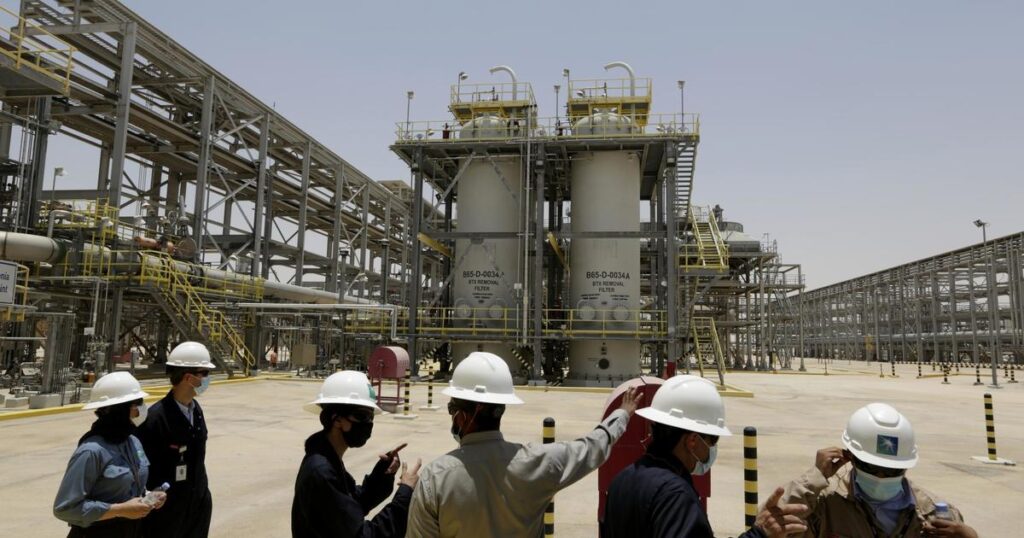

Oil prices surged by more than $2 a barrel on Wednesday, just hours after Hamas political leader Ismail Haniyeh was killed in an early morning airstrike, as nervous investors keep an eye on rising violence in the Middle East.
The militant group said Haniyeh was assassinated in the Iranian capital after attending the inauguration of Iran’s new president. Iranian authorities and Hamas have blamed Israel for the attack that killed Haniyeh. Israel has not acknowledged the killing of the Hamas leader, but a U.S. official told CBS News’ Margaret Brennan that the U.S. has determined that both Haniyeh and Hezbollah’s top commander, Fuad Shukr, were killed in an Israeli attack.
Benchmark U.S. crude oil rose $2.64 to $77.38 per barrel, while Brent crude rose $2.38 to $80.45 per barrel.
Israel had vowed to kill Haniyeh and other Hamas officials in an Oct. 7 terror attack on Israel in which militants killed about 1,200 people and took about 240 hostages. The attack triggered war in Gaza, a densely populated Palestinian territory that has been controlled for almost two decades by Hamas, which has long been designated a terrorist organization by Israel and the United States.
Investors are closely watching conflict in the Middle East for signs that escalating hostilities between Israel and Iran could threaten global oil supplies and push up energy prices. The region contains more than half of the world’s crude reserves, according to the Organization of the Petroleum Exporting Countries’ (OPEC) latest estimates.
Neither Israel nor the Palestinian territories are major oil producers — with just two refineries with a production capacity of just under 300,000 barrels a day, according to Energy Information Administration data — but analysts worry about the risk of an escalating conflict that would involve other major Middle Eastern countries.
Despite rising oil prices, analysts said they don’t believe the recent regional conflicts will translate into higher gasoline prices for Americans. The national average price for regular unleaded gasoline was $3.49 a gallon as of Wednesday, down about 25 cents from a year ago, according to AAA.
Oil prices are one of many factors that ultimately determine how much you pay at the pump for your car. Patrick de Haan, head of oil analysis at GasBuddy, noted that oil prices fell on Tuesday on concerns that China’s economic slowdown will last longer than expected. He said today’s spike in oil prices has almost offset the declines from earlier this week.
“Gas prices aren’t going to spike, if they do,” de Haan told CBS MoneyWatch. “Oil prices would probably have to go above $80 to $82 for gas prices to really rise.”
Christopher J. Brooks
Christopher J. Brooks is a reporter for CBS MoneyWatch. He previously worked as a reporter for the Omaha World-Herald, Newsday and the Florida Times-Union. His reporting focuses primarily on the U.S. housing market, the business of sports and bankruptcies.
Tara Thomas Agency stands at the forefront of the entertainment industry, with years of experience dedicated to nurturing the most exceptional talents and successful acts.